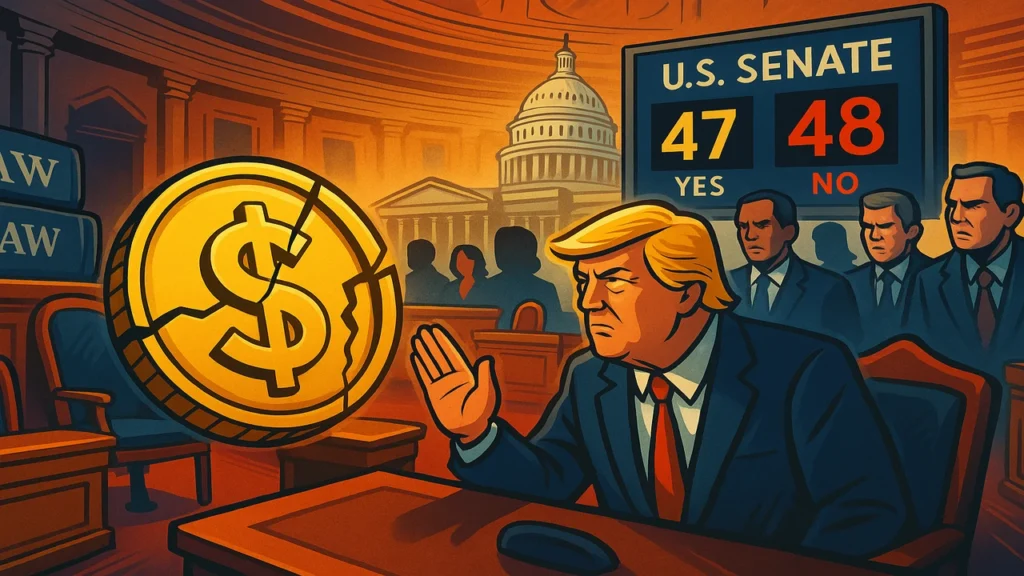The stablecoin bill remains politically contentious in the United States Senate amid increasing concerns for cryptocurrency conflicts of interest. The Guiding and Establishing National Innovation for U.S. Stablecoins (GENIUS) Act failed to pass on May 9, 2025, by just one vote. The stablecoin legislation was projected to establish a robust regulatory scheme for U.S.-issued payment stablecoins.
This congressional defeat came shortly after Democratic lawmakers proposed the End Crypto Corruption Act, which is intended to prevent presidential and congressional participation in crypto projects. The new bill is specifically aimed at President Trump, who would be barred from issuing or marketing digital assets, such as any stablecoin bill provisions that would economically benefit him and other senior government officials.
Co-author Senator Jeff Merkley stressed that politicians should not be able to gain from peddling unstable digital assets. The stablecoin bill was generally recognized as a bipartisan move toward regulation, but the scandals in politics diverted attention. Indeed, 20 Democratic senators such as Elizabeth Warren and Bernie Sanders have now redirected their efforts to stopping corruption involving crypto within government.
Stablecoin Bill Debate Heats Up Amidst Trump Scandals
President Trump’s forays into cryptocurrencies have commanded nationwide attention. He introduced $TRUMP and $MELANIA tokens in January, and the tokens now account for almost 40% of his wealth. Critics feel that enabling a sitting president to earn money on cryptocurrencies raises unparalleled ethical questions, particularly when legislative initiatives like the stablecoin bill are stuck in limbo.
Senator Merkley cautioned that individuals might purchase the president’s tokens for political influence. All these worries came alive when Trump offered White House dinner invitations to the top $TRUMP token holders. Therefore, the negotiations for the stablecoin bill receded to discussions on influence, corruption, and national security.
Foreign Connections Concerns
Foreign developments have made things worse. News emerged of a Trump-supported crypto company seeking deals with overseas firms, including Binance and a $2 billion Abu Dhabi investment. Such connections have raised concerns. Senate Democrats are concerned that such connections may breach the Constitution and threaten national security.
These events further sidetracked the stablecoin bill since lawmakers insisted on ethics probes before any crypto legislation moves. Senator Schumer bluntly said, “Our democracy shouldn’t be for sale.” That message has rendered it politically perilous for any legislator to back the stablecoin bill as long as these issues remain unresolved.
While the bill was intended to oversee stablecoins and increase market clarity, its future is now uncertain. Launchpad Capital’s Ryan Gilbert sounded dismayed, commenting that good policy should not be hindered by personal agendas.
The stablecoin bill, once the centerpiece of U.S. crypto regulation, could now be put off indefinitely. As long as worries about corruption and presidential profiteering remain unresolved, lawmakers do not seem ready to move ahead on even the most sensible crypto initiatives

